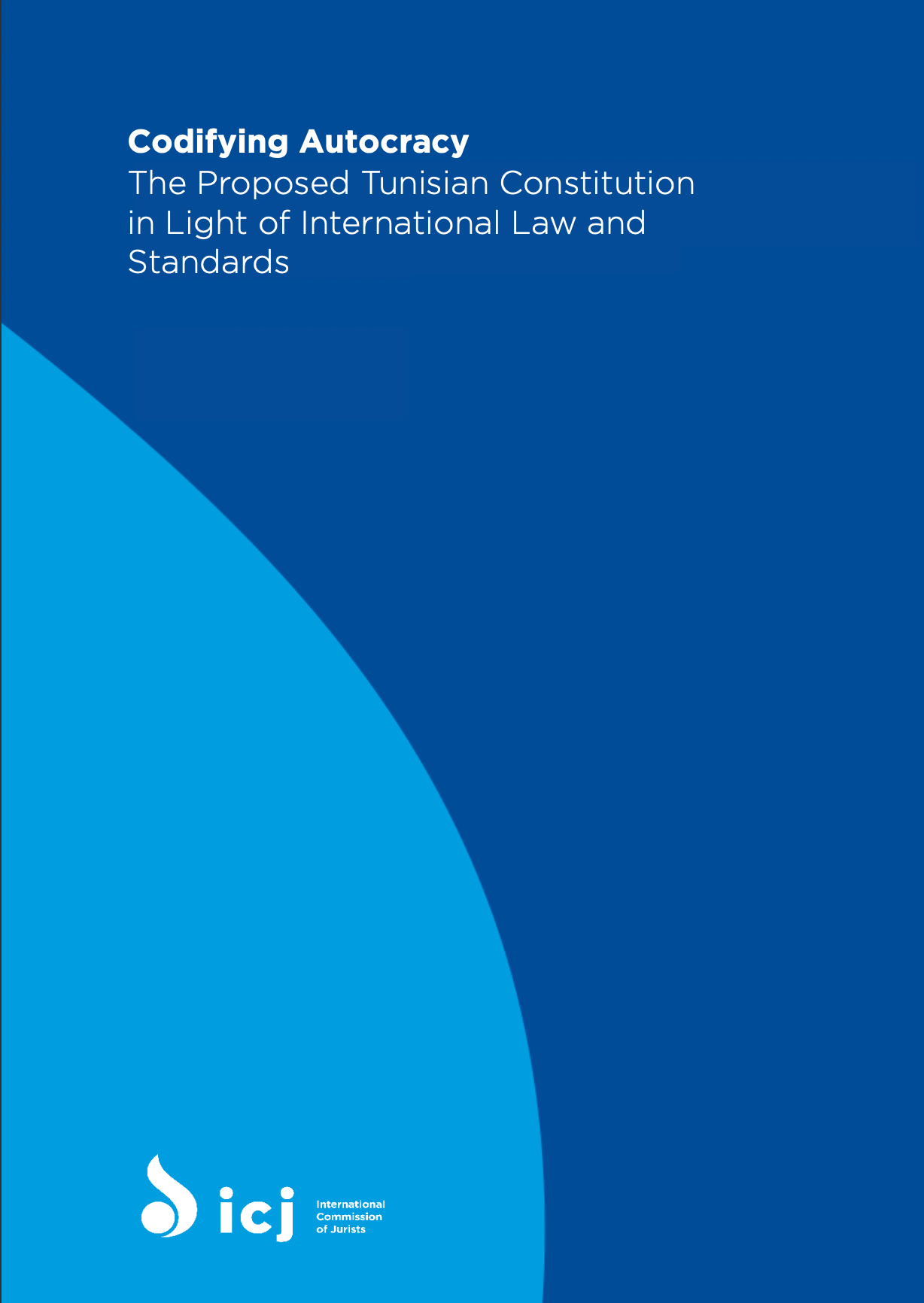In a briefing published today, the International Commission of Jurists cautions that the adoption of the proposed Constitution would return Tunisia to an autocratic constitutional order.
هذا البيان متوفر باللغة العربية أيضاً
Should the proposed Constitution be adopted through the Monday 25 July referendum, both the legislature and the judiciary would be subordinated to the President, key constitutional human rights protections would be forgone, the rule of law and human rights would effectively be dismantled, and essential checks on the President’s powers would be removed.
On 30 June 2022, the President of the Republic, Kais Saied, published a new draft Constitution to be submitted to voters in a referendum. As the ICJ has previously pointed out, the process for drafting this proposed Constitution has been devoid of any legal basis, democratic legitimacy, inclusivity, accountability and transparency.
‘This is a constitution drafted by the President for the President’, said the Director of the ICJ’s MENA Programme Said Benarbia. ‘Throughout the text, we see President Saied’s vision for an unchecked presidential system, with an unaccountable, unimpeachable President, a powerless Parliament and a subordinated judiciary’
In the paper, the ICJ calls on the Tunisian authorities to:
- Withdraw the proposed draft Constitution, end the “state of exception” and re-establish the constitutional order;
- Ensure that no Constitutional revision or constitution-making process takes place until and unless the constitutional order is compliant with principles of the rule of law, separation of powers, and the independence of the judiciary, as well as international human rights law and standards;
- Fully embed the rule of law in the framework for the functioning of the state, including by ensuring the separation of powers, attribution of competences and adequate checks and balances between the legislature, the executive and the judiciary, as independent authorities and not as mere functions of the state;
- Clearly specify that presidential immunity cannot be used to shield the President of the Republic from accountability in case of serious violations of the constitution, including interference in the legislative and the judiciary;
- Ensure full independence of the judiciary as an institution and judges as individuals from the interference of the executive, in compliance with international laws and standards, including by ensuring that all aspects related to their selection, appointment, transfer and disciplining be managed by an independent High Judicial Council, based on objective, merit-based criteria, and transparent procedures, guaranteeing the security of tenure of members of the judiciary until a set retirement age or for an adequate fixed term, and adequately protecting the fundamental freedoms of judges; and
- Enshrine guarantees or the independence of the Constitutional Court, including the independence of its members, as well as independent appointment procedure for the selection of its members.
Download
This paper can be downloaded in English here, in Arabic here, and in French here.
Contact
Said Benarbia, Director, ICJ Middle East and North Africa Programme; t: +41 22 979 3817, e: said.benarbia(a)icj.org
Tamara Aburamadan, Legal Researcher, ICJ Middle East and North Africa Programme; e: tamara.aburamadan(a)icj.org
Asser Khattab, Research and Communications Officer, ICJ Middle East and North Africa Programme; e: Asser.Khattab(a)icj.org

